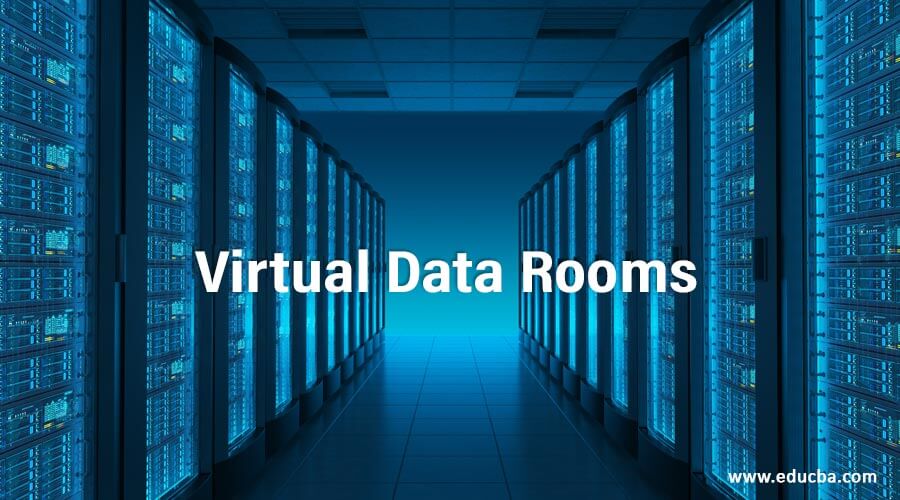Updated May 30, 2023

What are Virtual Data Rooms?
A virtual data room also called an electronic data room or virtual deal room, is an online database where organizations store and share confidential data, typically for financial transactions. It is like a filing system or electronic repository for documents. With the help of VDR, users can securely share critical business information with investors, clients, and company leadership over the Internet. It helps to reduce the physical paperwork and tedious work of managing files in an office.
Is VDR the Same as “Data Rooms”?
A Virtual Data Room is an advanced data room. In the past, companies stored relevant data in walk-in rooms, essentially storage rooms. Hence there was not much security for confidential or sensitive data.
Virtual Data Rooms are easy to use and store much more data than physical data rooms. It includes cloud data storage; however, features and storage capacity is depended on the provider.VDRs are highly secure. ISO 27081 certification is set to provide security for cloud storage systems. VDR providers take a multi-faceted and comprehensive way to secure online files. They use various complex layers to protect data from potential threats and risks.
Here is a list of features of the Virtual Data Room, which includes security measures.
- Physical Security: It provides continuous data backup, and its uptime is over 99.5%.
- Application Security: It uses encryption methods, multi-factor authentication, digital watermarking, accident redemption, etc.
- Infrastructure Security: It uses a 256-bit AES encryption algorithm. It also stores data on remote data centers.
- Data Center Certifications: It contains different standardized certifications such as ISO 9001 / ISO 27001, SOC2, FINRA, etc.
- Auditing and Compliance: It provides auditing and reporting of logs for every action that occurs in a data room
What are the Benefits of Virtual Data Rooms?
A VDR is the most secure and user-friendly way for organizations that wish to streamline document sharing efficiently. As we have seen, VDR is an excellent solution for sharing documents and confidential business data. Additionally, it has various kinds of advantages, which are listed below.
- It secures of company’s data efficiently.
- It provides Secure data and Document management
- Based on a set of rules, it allows access to multiple clients or users.
- VDR also runs on mobile devices
- It will enable uploading a large amount of data
- It provides accurate search functionality
Because of these advantages, many business clients, owners, managers, suppliers, and acquirers choose VDR to secure the company’s data effectively. There are many other reasons and features to use VDR instead of only file-sharing software or physical data rooms.
- Reliability: VDR can be accessed on the cloud, which is more reliable than a traditional mainframe computer. Users can access their data or software stored in VDR if a computer is not working.
- Security: Laptops or Desktops can be stolen. Also, if there are emergencies like fires or floods, it will wipe out the whole IT infrastructure of an organization. So users do not have to face such problems if data already exists in the cloud.
- Accessibility: Authorized individuals can access Virtual Data Rooms (VDRs) from registered devices regardless of location.
- Scalability: A virtual data room offers seamless data access without disruptions.
- Usability: VDR has an attractive and easy-to-use interface and good UX.
Who uses VDR?
There are various uses for which organizations use VDR, including:
- M&A: Virtual data rooms are used during the due diligence stage of M&A to share documents with different teams in an organization, potential buyers, sellers, and customers.
- Fundraising: Sometimes, Companies need to share their confidential data with prospective investors to raise funds. Hence Prospective investors can effectively access documents, upload their data, or ask questions on VDR.
- Strategic Partnerships: partners can use VDR to grant each other access to essential documents and data. They can also set specific permissions for who can access what.
- Board Communications: Different Teams in the company can securely communicate within VDR about deals, planning, etc. VDRs can facilitate the hosting of meetings as well.
- Manufacturing: Manufacturing industries use Virtual Data Rooms to share designs and planning.
Other industries use VDR, such as the Investment Banking sector, for processes like capital raising, IPOs, and M&A. Corporate Development, Legal Industry, Accounting, and auditing companies have vast data to store.
Recommended Articles
This is a guide to Virtual Data Rooms. Here we also discuss the introduction and various uses of virtual data rooms. You may also have a look at the following articles to learn more –

